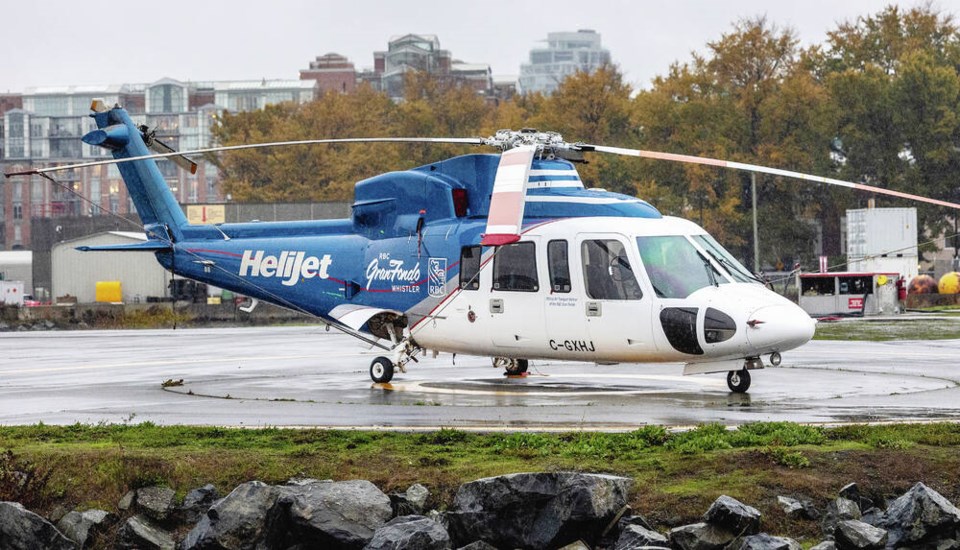Two Helijet pilots safely descended through 3000-feet of cloud without instruments Tuesday morning after their Sikorsky helicopter was struck by lightning over Haro Strait.
The pilots reported hearing “a very large bang and a white light,” said Helijet chief executive officer Daniel Sitnam.
“They continued to fly, but soon after they lost their instrumentation on their cockpit. They lost all navigational information and the instruments,” he said.
The helicopter, with 12 passengers and two crew, was on its scheduled flight between Vancouver and Victoria.
“It left Vancouver at 9:11 a.m. The weather was fine. There was no information or any statements that there was lightning or electricity in the air. We check that regularly,” said Sitnam.
The helicopter, which typically travels about 4000 feet above sea level, was flying in the clouds which meant the the pilots were flying under instrument flight rules.
Although the instruments went black, the pilots were still able to communicate with the control tower. They sent out an urgent Pan-Pan-Pan signal to let the control tower know they needed clear lines of communication while they assessed the situation, Sitnam explained.
“They attempted to start descending and did a phenomenal job of controlling the aircraft without instrumentation. They got it below the cloud layer, which was around 1,300 feet above sea level,” he said.
Once they moved through 3,000 feet of clouds, they could see the ground and were able to navigate visually. They flew to the Victoria heliport, made a safe landing, debriefed the passengers and shut down the engines, said Sitnam.
Further investigation of the aircraft revealed that the helicopter lost two of four tail rotor blades when it was struck by lightning, he said.
“We’re commending the flight crew for what they did and how they’ve been trained, which can only be done on a simulator, which we do very regularly with all our flight crew so they can practise such an unusual event,” said Sitnam.
“From a lightning strike, losing your instruments and being in cloud at the same time with no reference, we’re pretty proud of our crew, proud of the company and we’re very very pleased that everyone is on the ground safe and sound.”
He estimated the helicopter was about 50 kilometres from Victoria Habour when it was struck by lightning.
Helijet advised the Transportation Safety Board of the lightning strike. The board is pulling the cockpit voice recorders, collecting data and will probably do its own investigation in the days to come. In the meantime, the damaged helicopter is secure at the Victoria heliport, said Sitnam.
He believes the aircraft can be repaired and brought back into service.
The pilots debriefed with Helijet’s director of safety, the chief pilot and the human resources director.
“We told them ‘Go relax. We’ll talk to you again tomorrow,’ ” said Sitnam.
Helijet is also in touch with all the passengers, letting them know the company will provide any needed assistance in the coming days, said Sitnam.
>>> To comment on this article, write a letter to the editor: [email protected]




